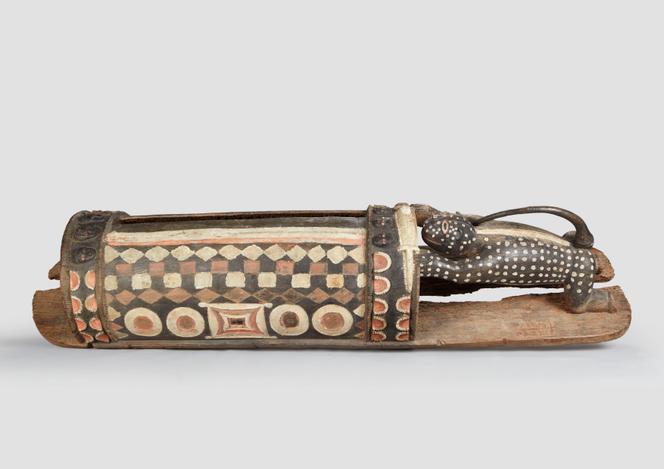France Approves Restitution of Sacred ‘Djidji Ayôkwé’ Drum to Côte d’Ivoire in Historic Vote

In a landmark decision, the French Parliament unanimously approved legislation on July 7, 2025, authorizing the restitution of the sacred Djidji Ayôkwé talking drum to Côte d’Ivoire. This cultural treasure, stolen by French colonial forces over a century ago, had been formally requested by the Ivorian government since 2019.
A Historic Step Toward Cultural Justice
The parliamentary vote marks a significant exception to France’s principle of inalienability of public collections, paving the way for the drum’s return within the year. Bertrand Sorre (Renaissance party), the bill’s rapporteur, described the decision as contributing to “the reparation of an extortion.” The debate also reignited calls for a broader framework law to address colonial-era cultural looting.
Culture Minister Rachida Dati announced the government would present this framework legislation “before the end of July”, with parliamentary examination beginning in autumn. While emphasizing the need to avoid “ideological repentance”, Dati acknowledged growing expectations for systemic restitution policies.
Divergent Political Perspectives
The parliamentary debate revealed starkly different views on France’s colonial legacy. Socialist MP Fatiha Keloua Hachi framed the restitution as “not a favor but reparation,” calling for comprehensive colonial history education. Green MP Sabrina Sebaihi argued that “domination persists until recognized and repaired,” advocating for full restitution of looted artifacts.
Conversely, National Rally MP Frédéric-Pierre Vos supported the return “without moralizing or repentance,” while Republican MP Sébastien Martin stressed maintaining France’s role as a “universal cultural crossroads” through institutions like the Quai Branly Museum.
The Djidji Ayôkwé’s Journey Home
Measuring over three meters long and weighing 430 kg, this sacred instrument was used by the Ebrié people for ritual communication and village alerts. Seized in 1916 by colonial authorities, it entered French collections in 1929, displayed successively at the Trocadéro Ethnography Museum and Quai Branly. After extensive 2022 restoration, its return fulfills a 2021 commitment by President Macron.
The Ivorian Culture Ministry welcomed the decision as part of broader cultural reclamation efforts, including rehabilitation of Abidjan’s Museum of Civilizations and scientific partnerships with French institutions.
Broader Implications for Cultural Restitution
This case represents a critical test for France’s evolving approach to colonial-era artifacts. As European nations grapple with restitution demands, the Djidji Ayôkwé’s return may establish important precedents for:
- Streamlining restitution procedures
- Balancing museum preservation with ethical returns
- Developing international cultural partnerships
With over 90,000 African artifacts in French public collections, this decision signals potential momentum toward addressing colonial-era cultural injustices while raising complex questions about museum governance and historical accountability.
Source: Le Monde with AFP


